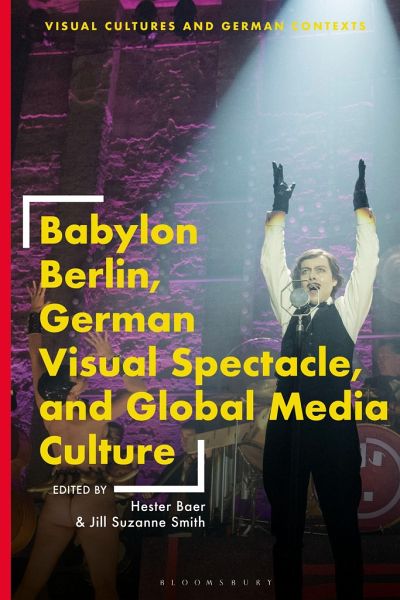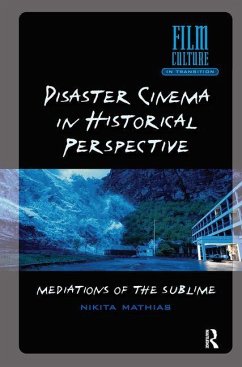
Babylon Berlin, German Visual Spectacle, and Global Media Culture
Versandkostenfrei!
Versandfertig in über 4 Wochen
89,99 €
inkl. MwSt.

PAYBACK Punkte
45 °P sammeln!
The popular German streaming series Babylon Berlin-a neo-noir thriller set in the final years of the Weimar Republic-builds on the fascination with 1920s Berlin as a centre of political and economic upheaval, hedonistic nightlife, and vibrant artistic experimentation. Exploring Weimar's history and culture, its legacy, and its resonance in the early 21st century, this volume analyses Babylon Berlin and its unique contribution to contemporary visual culture. Since its inception in 2017 the series has reached audiences throughout Europe, Asia, and the Americas and has been met with both critical...
The popular German streaming series Babylon Berlin-a neo-noir thriller set in the final years of the Weimar Republic-builds on the fascination with 1920s Berlin as a centre of political and economic upheaval, hedonistic nightlife, and vibrant artistic experimentation. Exploring Weimar's history and culture, its legacy, and its resonance in the early 21st century, this volume analyses Babylon Berlin and its unique contribution to contemporary visual culture. Since its inception in 2017 the series has reached audiences throughout Europe, Asia, and the Americas and has been met with both critical and popular acclaim. As a visual work rife with historical and contemporary citations Babylon Berlin offers its audience a panoramic view of politics, crime, culture, gender, and sexual relations in the German capital. Focusing especially on the intermedial and transhistorical dimensions of the series, across four parts-Babylon Berlin, Global Media and Fan Culture; The Look and Sound of Babylon Berlin; Representing Weimar History; and Weimar Intertexts-the volume brings together an international group of scholars to critically examine various facets of the show, including its aesthetic form and citational style, its representation of the history and politics of late Weimar, and its exemplary status as a blockbuster production of neoliberal media culture. Considering the series from the perspective of a variety of disciplines, Babylon Berlin, German Visual Spectacle, and Global Media Culture is essential reading for fans of the series and for scholars and students of cinema and media studies, visual culture, history, and German & European studies.












